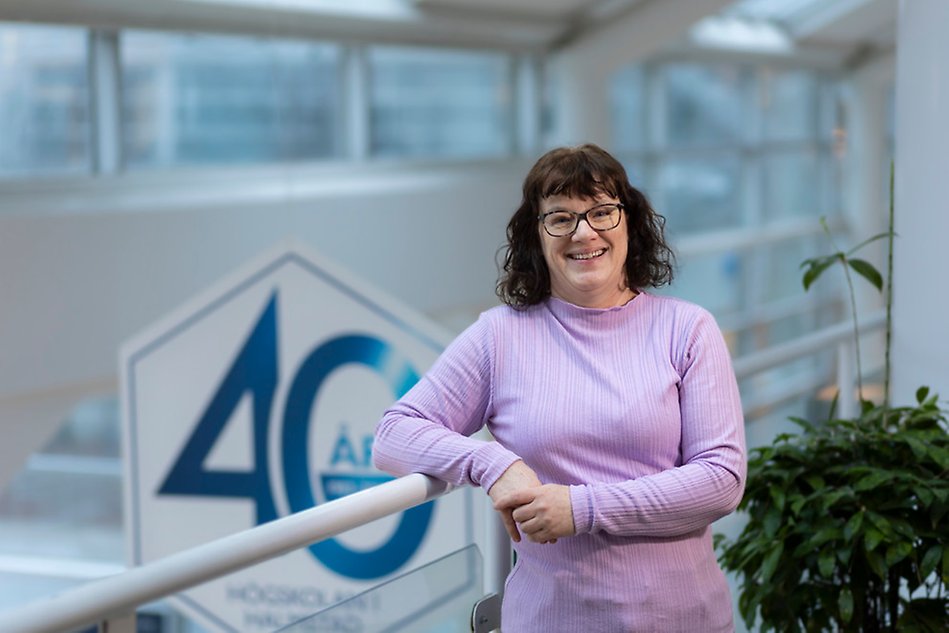Cecilia Garell, Health and Lifestyle
Cecilia Garell is doing her PhD studies in Health and Lifestyle at Halmstad University and thinks that part of the allure is that no day is the same.

Cecilia Garell.
Hi, Cecilia. What is your research about?
“I am interested in immigrant women’s successful path to getting a job in Sweden. What I want to find out is which events and turning points that, in these women’s own experience, have been significant for them to find their place, their work. My focus is on the good things, what promoted the journey until finding your place. In nicer terms – the project starts from a salutogenic perspective.”
What is it like to be a PhD student?
“It is fun and exciting to learn new things. While it is creative and independent, I have good support from my supervisors and from the larger project group that my doctoral project is part of. It is a privilege to be able to share the immigrant women’s stories, about their struggle and drive. I feel a great responsibility to contribute to the development of knowledge and society by, in due course, spreading the knowledge that is based on these women’s experiences.”
What does a typical day look like?
“There is no such thing as a typical day! That is also part of the allure of this job. In my position, there is time for 50% research studies and 50% teaching. This does not mean that every day I devote four hours to each. During periods when there is a greater focus on the research studies, I do interviews and transcribe these in order to then be able to dig deeper into the material and write drafts for what will become scientific articles. Other days consist of reading, thinking and planning. On top of that, I am also a student and take PhD courses.”
What is it like to teach?
“It really is a lot of fun to teach! Both to stand in the classroom and (sometimes) see a smile and a nod as confirmation and perhaps as a sign of an ‘aha’ moment, and to follow the students’ development during their years at the University. Work related to teaching easily tends to grow and can take up a lot of time. Because of that it is nice, I think, that I had a few years of teaching only (and other experiences before that) before I started the PhD education. It makes it easier for me to think ‘this is good enough’ and make sure that I have satisfactory planning and foresight.”
Do you have any advice for new PhD students?
“Be open and listen to others, both to share their experiences but also to be a good colleague. There may come times for everyone when we need to call on all available resources; be a resource when you can. Dare to ask, dare to be a ‘difficult student’ when there is something that you do not understand. Keep in mind that the postgraduate education is just that – an education. Take advantage of the opportunities you see to learn more and practice discussing your research.”
Text and photo: Emma Swahn

